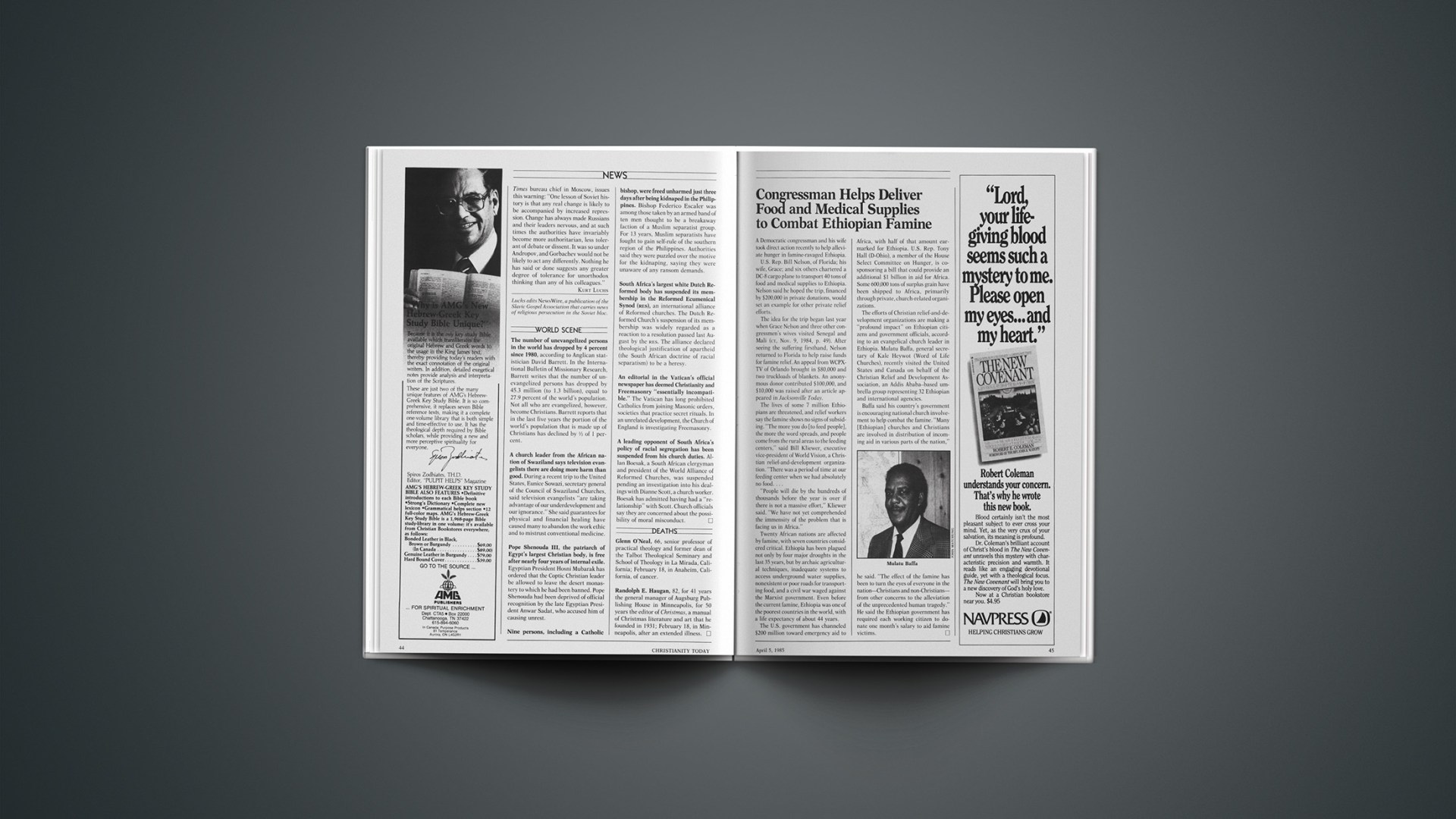A Democratic congressman and his wife took direct action recently to help alleviate hunger in famine-ravaged Ethiopia.
U.S. Rep. Bill Nelson, of Florida; his wife, Grace; and six others chartered a DC-8 cargo plane to transport 40 tons of food and medical supplies to Ethiopia. Nelson said he hoped the trip, financed by $200,000 in private donations, would set an example for other private relief efforts.
The idea for the trip began last year when Grace Nelson and three other congressmen’s wives visited Senegal and Mali (CT, Nov. 9, 1984, p. 49). After seeing the suffering firsthand, Nelson returned to Florida to help raise funds for famine relief. An appeal from WCPXTV of Orlando brought in $80,000 and two truckloads of blankets. An anonymous donor contributed $100,000, and $10,000 was raised after an article appeared in Jacksonville Today.
The lives of some 7 million Ethiopians are threatened, and relief workers say the famine shows no signs of subsiding. “The more you do [to feed people], the more the word spreads, and people come from the rural areas to the feeding centers,” said Bill Kliewer, executive vice-president of World Vision, a Christian relief-and-development organization. “There was a period of time at our feeding center when we had absolutely no food.…
“People will die by the hundreds of thousands before the year is over if there is not a massive effort,” Kliewer said. “We have not yet comprehended the immensity of the problem that is facing us in Africa.”
Twenty African nations are affected by famine, with seven countries considered critical. Ethiopia has been plagued not only by four major droughts in the last 35 years, but by archaic agricultural techniques, inadequate systems to access underground water supplies, nonexistent or poor roads for transporting food, and a civil war waged against the Marxist government. Even before the current famine, Ethiopia was one of the poorest countries in the world, with a life expectancy of about 44 years.
The U.S. government has channeled $200 million toward emergency aid to Africa, with half of that amount earmarked for Ethiopia. U.S. Rep. Tony Hall (D-Ohio), a member of the House Select Committee on Hunger, is co-sponsoring a bill that could provide an additional $1 billion in aid for Africa. Some 600,000 tons of surplus grain have been shipped to Africa, primarily through private, church-related organizations.
The efforts of Christian relief-and-development organizations are making a “profound impact” on Ethiopian citizens and government officials, according to an evangelical church leader in Ethiopia. Mulatu Baffa, general secretary of Kale Heywot (Word of Life Churches), recently visited the United States and Canada on behalf of the Christian Relief and Development Association, an Addis Ababa-based umbrella group representing 32 Ethiopian and international agencies.
Baffa said his country’s government is encouraging national church involvement to help combat the famine. “Many [Ethiopian] churches and Christians are involved in distribution of incoming aid in various parts of the nation,” he said. “The effect of the famine has been to turn the eyes of everyone in the nation—Christians and non-Christians—from other concerns to the alleviation of the unprecedented human tragedy.” He said the Ethiopian government has required each working citizen to donate one month’s salary to aid famine victims.










